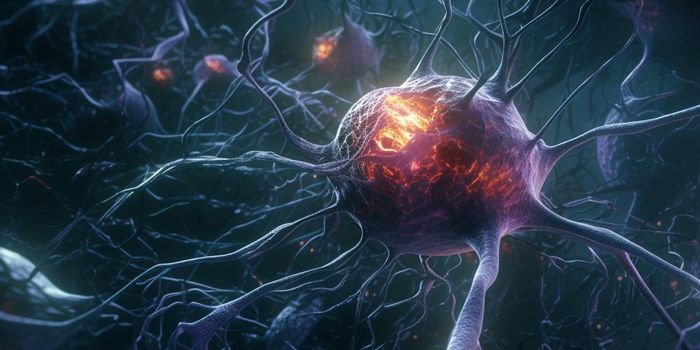Does Poor Sleep Lead to Obesity, or is the Opposite True?
For many years, researchers have been aware of the link between obesity and poor sleep or a lack of sleep. It's been thought that poor sleep can lead to weight gain and obesity; sleep restriction has been shown to increase appetite, hunger, and food consumption.
New work reported in PLOS Biology has now suggested the opposite, however. Scientists used a common molecular model, the microscopic worm Caenorhabditis elegans (C. elegans), to show that when sleep is prevented, levels of energy in the form of ATP drop in the worm.
"We think that sleep is a function of the body trying to conserve energy in a setting where energetic levels are going down. Our findings suggest that if you were to fast for a day, we would predict you might get sleepy because your energetic stores would be depleted," said study co-author David Raizen, M.D., Ph.D., an associate professor of Neurology and member of the Chronobiology and Sleep Institute at the University of Pennsylvania's Perelman School of Medicine.
The researchers acknowledged that these findings may not be recapitulated exactly in people, but C. elegans is a good model for investigating human sleep. The tiny worms have a simple nervous system that consists of only 302 neurons, and one is known to help control sleep.
Humans that sleep fewer than six hours a night are more prone to diabetes and obesity. In many animals including humans, worms, and rats, starvation impacts sleep, suggesting that the availability of nutrients influences sleep. But the mechanisms are still unclear.
"We wanted to know, what is sleep actually doing? Short sleep and other chronic conditions, like diabetes, are linked, but it's just an association. It's not clear if short sleep is causing the propensity for obesity, or that the obesity, perhaps, causes the propensity for short sleep," said study co-author Alexander van der Linden, Ph.D., an associate professor of Biology at the University of Nevada, Reno.
In this work, the scientists modified C. elegans so that the neuron controlling sleep would be deactivated. The worms were still able to breathe, eat, and reproduce, but could no longer sleep. There was also a drop in a molecule the body uses for fuel, called ATP.
"That suggests that sleep is an attempt to conserve energy; it's not actually causing the loss of energy," Raizen explained.
A worm gene called KIN-29 is analogous to a human gene called Salt-Inducible Kinase (SIK-3), which is known to play a role in sleep. In previous work by the van der Linden lab, the KIN-29 gene was deleted, creating sleepless worms. These mutant worms also built up excess fat, even while their ATP levels dropped.
The scientists suggested that the release of fat is promoting sleep, and KIN-29 mutants don't sleep because they cannot release fat. When the researchers exposed their mutant insomniac worms to an enzyme that could free the fat, the worms were then able to sleep.
Raizen suggested that this may be a reason why obese people often have sleep problems. "There could be a signaling problem between the fat stores and the brain cells that control sleep," he said.
"There is a common, over-arching sentiment in the sleep field that sleep is all about the brain, or the nerve cells, and our work suggests that this isn't necessarily true," added Raizen. "There is some complex interaction between the brain and the rest of the body that connects to sleep regulation."
Sources: Science Daily via University of Pennsylvania School of Medicine, PLOS Biology









